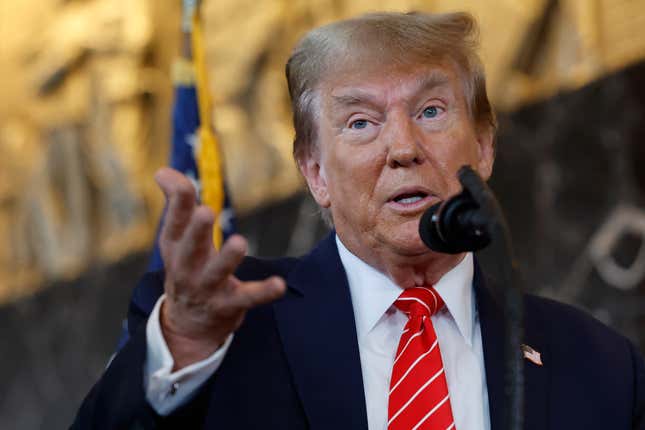
Donald Trump is the self-proclaimed “King of Debt.” That extended to the national debt during his time as president — and is poised to continue in a possible second term.
A new analysis released Monday by the Committee for a Responsible Federal Budget (CRFB) found that Trump approved $8.4 trillion worth of new 10-year borrowing during his full term. Excluding funding tied to COVID-19 pandemic relief, namely the CARES Act, he still approved a whopping $4.8 trillion in debt.
The bulk of that impact — just over three-quarters — came from bipartisan legislation, according to the budget watchdog. Besides the CARES Act, the biggest contributors to the national debt were Trump’s tax cuts and the Bipartisan Budget Act of 2018 and 2019, which suspended the federal debt limit for two years and lifted spending caps by $320 billion.
His rival, President Joe Biden, hasn’t been shy about adding to the national debt either.
In total, the incumbent added $4.3 trillion to the debt over the first three years and five months of his presidency, including relief tied to the pandemic. But after taking out the impact of the American Rescue Plan (ARP), his total contribution falls to $2.2 trillion, or less than half what Trump added.
Just 29% of Biden’s contributions to the net 10-year debt came from bipartisan legislation, such as the Bipartisan Infrastructure Law, primarily because of Republican opposition to the ARP. The remainder of his “partisan” contributions are tied to executive actions targeting student debt relief, among others.
As the CRFB points out, controlling the national debt hasn’t been a major priority for either candidate. And that’s not expected to change much in either’s potential second term.
By the end of 2025, Congress will have to decide whether to extend most of Trump’s tax cuts or allow them to expire. A full extension would add $4.6 trillion in debt over the next decade, according to the nonpartisan Congressional Budget Office.
Biden has said he will allow income tax cuts for the rich to expire, while keeping those for earners who make less than $400,000 each year. Trump has promised to give “the biggest tax cut” that would lower rates for every income class. The former president has also floated the idea of eliminating income taxes in favor of hiking tariffs on imports, which would raise taxes for a typical family by $2,500 per year, according to the progressive Center for American Progress.